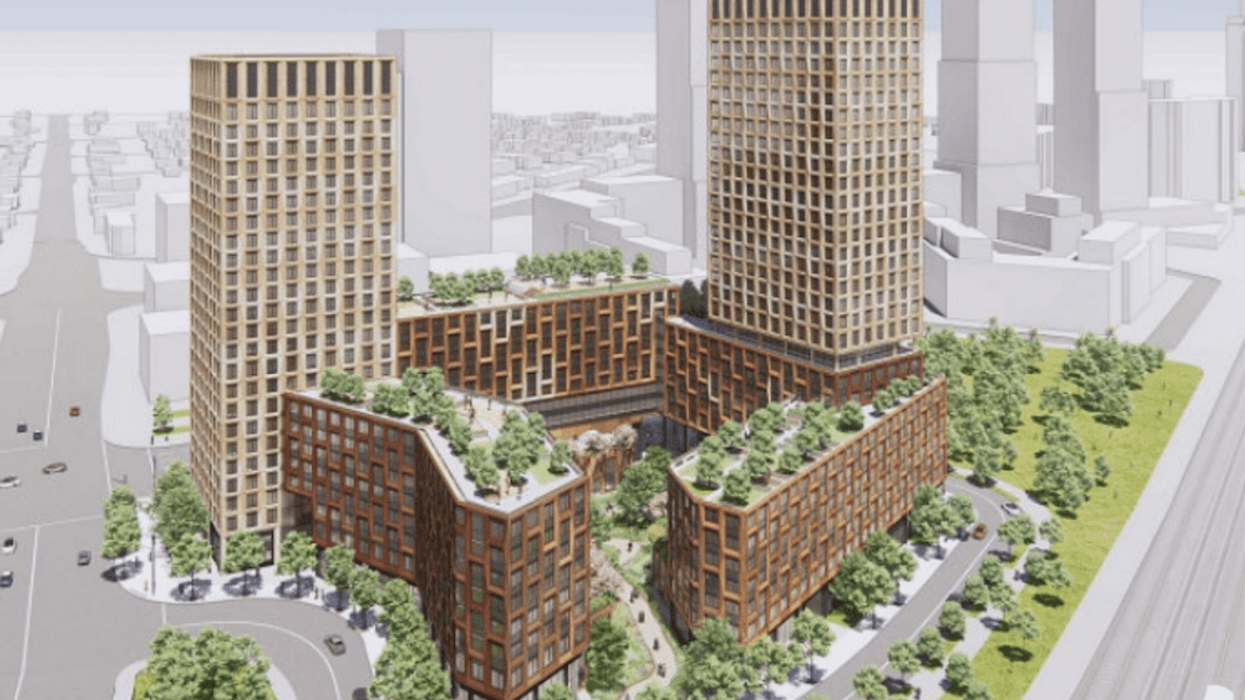Four and a half years after its launch, the City of Toronto's Housing Now initiative will finally break ground next month on its first-ever development.
Approved in January 2019 with plans to deliver over 10,000 new homes across 11 city-owned sites, Housing Now's goals continued to grow year by year to 16,300 homes and 21 sites, but no actual housing ever materialized. Among the development industry, the program earned the nicknames of "Housing Later," and "Housing Maybe."
But the City appears to be on track to drop the pessimistic moniker, with plans to get shovels in the ground in July on a vacant lot at 5207 Dundas Street West, just north of the Kipling GO station. And it won't be the only project to start construction this year. Two other sites -- 50 Wilson Heights Boulevard and 140 Merton Street -- are also shovel-ready, the City says, with work expected to start by the end of 2023.
Altogether, the three sites will hold a minimum of 1,949 purpose-built rental units, more than 800 of which will be affordable. The remaining market-rate rentals will all be rent controlled, with prices not to increase more than the allowed guideline plus 2% annually for 99 years.
"The City recognizes that Housing Now is a critical component of the HousingTO 2020-2030 Action Plan and an innovative way to leverage City land and resources to increase the necessary supply of permanent affordable rental housing in Toronto," said Deputy Mayor Jennifer McKelvie. "We are delivering on our commitment to Housing Now by working quickly to begin construction on the three shovel-ready sites identified for this year.”
When it launched, Housing Now was billed as a way to quickly convert surplus City properties near transit hubs into much-needed housing developments, with at least one-third of each build reserved for affordable housing. The City previously attributed its construction delays to the pandemic, when the high cost of building materials made it hard to finance projects. It has also pointed to lost revenue as a result of the Province's Bill 23, the More Homes Built Faster Act, which cut development charge revenues -- the City's primary tool for delivering new housing.
With construction on three sites soon to be underway, the City is already eyeing five more to add to the pipeline, according to a progress report from April of this year.
The report also notes that just 10 of the 21 sites have been re-zoned so far, and only six have completed market offerings. To date, the City has committed $1.3B in land value, capital funding, and financial incentives to the initiative.





















